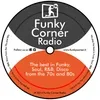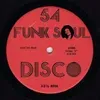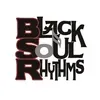Soul Live Radio Stations
Radio Stations
- _Funky Corner Radio (Spain)

- _Funky Corner Radio (USA)

- _Radio Energy Classic (Italy)_Radio Energy Classic (Italy)
- - 0 N - 60s on Radio

- - 0 N - 60s on Radio

- - 0 N - Black on Radio

- - 0 N - Black on Radio

- - 0 N - Disco on Radio

- - 0 N - Disco on Radio

- - 0 N - Gold on Radio

- - 0 N - Gold on Radio

- - 1 A - 60er von 1A Radio

- .100 Hip hop and RNB FM.100 Hip hop and RNB FM
- .977 Jamz.977 Jamz
- 1.21 Gigawatt Radio

- 1.FM - Adult Urban Hits Choice Radio

- 1.FM - Jamz Radio

- 1.FM - Slow Jamz Radio

- 1000 70er - laut.fm

- 1000 Oldies - laut.fm

- 181.FM - Christmas R&&B

- 181.FM - Jammin 181

- 181.FM - Soul

- 1A Urban Music1A Urban Music
- 1A Urban Music1A Urban Music
- 3FM

- 54 Funk Soul Dance (laut.fm)

- 674FM

- 70's on Dash

- 98.3 Superfly FM

- ABC Double J (AAC)

- ABC Double J (MP3)ABC Double J (MP3)
- AK RadioAK Radio
- ALTARO RadioALTARO Radio
- Alternative Radio

- Amsterdam Funk Channel

- Amvrakia Fm 91.9

- ANT1 Αιγαίου

- Art Of Music

- Athens Up Radio

- Audiogrooves Soul Channel

- Audiogrooves Sublime Beats Channel

- Avopolis

- Back2Back FMBack2Back FM
- Base FMBase FM
- Bayou Blue Radio

- BBC Radio 1Xtra

- Black Duck

- Black Rhino Radio

- Black Soul Rhythms Radio

Choose a Genre
Soul Music: The Heartbeat of Emotion and Rhythm
Soul music is a powerful genre that emerged in the United States during the late 1950s and early 1960s, combining the fervent energy of gospel with the groove of rhythm and blues (R&B) and the expressive storytelling of blues. This fusion created a sound that resonated deeply with listeners, characterized by its emotional vocals, strong basslines, and the soulful embellishment of brass instruments. As one of the most influential genres in the history of popular music, soul continues to be a defining force in shaping the soundscape of modern music.
The Origins of Soul Music: A Fusion of Gospel, R&B, and Blues
Soul music emerged from the African American communities, bringing together elements of gospel, R&B, and blues in a way that no other genre had before. The gospel influence gave the genre its spiritual depth and soaring vocal performances, while rhythm and blues and blues provided the musical structure and raw emotional expression. Early pioneers like Ray Charles, Sam Cooke, and Aretha Franklin helped define the genre with their powerful voices and unforgettable melodies.
The genre's emotional depth is what sets soul music apart from other styles. It’s music that speaks directly to the heart, channeling personal pain, joy, love, and resilience. The combination of powerful lyrics and musical arrangements creates a sound that’s simultaneously comforting and electrifying, leaving a lasting impact on the listener.
Soul Radio Stations: A Celebration of Past and Present Legends
Radio stations dedicated to soul music offer an enriching listening experience by showcasing a wide array of soulful tracks. These stations feature a mix of classic hits from legends like Marvin Gaye, Al Green, Otis Redding, and Etta James, as well as contemporary soul artists who continue to push the genre forward. From vintage tracks to fresh interpretations of the soul sound, these stations offer something for everyone — whether you're a long-time soul aficionado or a newcomer eager to explore the genre.
In addition to playing timeless soul music, these stations often curate deep cuts and rare recordings that aren't often found on mainstream radio. This treasure trove of forgotten gems gives listeners a chance to discover new sounds while honoring the legacy of soul music’s early innovators. Whether it’s a classic track from the 60s or a modern interpretation, soul radio stations provide a window into the full spectrum of the genre’s evolution.
The Role of DJs in Soul Music Radio
A central part of soul radio stations are the DJs who bring their passion for the genre to the airwaves. Many of these DJs have a profound knowledge of soul music, often sharing interesting facts and behind-the-scenes stories about the artists, songs, and albums that shaped the genre. Their deep understanding helps create a more intimate and immersive experience for listeners, allowing them to appreciate the historical and cultural significance of each track.
Soul DJs frequently interview well-known soul artists and emerging talent, giving fans access to exclusive live performances and firsthand accounts of the creative process. These interviews offer rare insights into the artists’ personal journeys and the stories behind their most iconic songs, allowing listeners to engage with the music on a deeper level.
Thematic Shows and Cultural Context
One of the unique aspects of soul radio stations is their ability to incorporate thematic shows that focus on specific sub-genres, time periods, or cultural movements within the soul genre. These specialized shows provide listeners with a more nuanced understanding of the genre, highlighting the ways soul music has evolved and influenced other forms of popular music, including funk, jazz, and hip hop.
Soul radio stations also emphasize the social and cultural contexts in which the music was created. From the civil rights movement to the rise of the Black Power movement, soul music has often been a reflection of the struggles and triumphs of African American communities. Stations may feature segments that explore how soul music has served as both an artistic expression and a form of social commentary, giving listeners a deeper appreciation for the genre's role in shaping society.
Beyond Music: A Holistic Listening Experience
Soul radio stations often enrich their programming by including segments that go beyond just the music. These may include interviews with actors, authors, or other cultural figures who have been inspired by soul music. By bringing in voices from other creative fields, these stations provide a well-rounded experience that celebrates the broader cultural impact of soul music. Whether discussing fashion, literature, or film, the connection between soul and various forms of art is explored, creating a dynamic and engaging listening experience.
Conclusion: The Enduring Legacy of Soul Music
Soul music is more than just a genre — it's a timeless expression of emotion and identity. Soul radio stations play an essential role in preserving the rich history of the genre, offering a platform for both classic and contemporary artists to share their craft. These stations provide listeners with an opportunity to explore the heart and soul of music, whether through familiar songs or rare recordings that offer a glimpse into the genre’s past.
For anyone who wants to connect with the emotions and stories that shaped popular music, soul radio stations provide a unique and invaluable listening experience. Whether you’re in the mood to reminisce with classic soul or discover a fresh new voice, these stations are the heartbeat of the soulful sound that continues to inspire generations of listeners.
Soul music is a powerful genre that emerged in the United States during the late 1950s and early 1960s, combining the fervent energy of gospel with the groove of rhythm and blues (R&B) and the expressive storytelling of blues. This fusion created a sound that resonated deeply with listeners, characterized by its emotional vocals, strong basslines, and the soulful embellishment of brass instruments. As one of the most influential genres in the history of popular music, soul continues to be a defining force in shaping the soundscape of modern music.
The Origins of Soul Music: A Fusion of Gospel, R&B, and Blues
Soul music emerged from the African American communities, bringing together elements of gospel, R&B, and blues in a way that no other genre had before. The gospel influence gave the genre its spiritual depth and soaring vocal performances, while rhythm and blues and blues provided the musical structure and raw emotional expression. Early pioneers like Ray Charles, Sam Cooke, and Aretha Franklin helped define the genre with their powerful voices and unforgettable melodies.
The genre's emotional depth is what sets soul music apart from other styles. It’s music that speaks directly to the heart, channeling personal pain, joy, love, and resilience. The combination of powerful lyrics and musical arrangements creates a sound that’s simultaneously comforting and electrifying, leaving a lasting impact on the listener.
Soul Radio Stations: A Celebration of Past and Present Legends
Radio stations dedicated to soul music offer an enriching listening experience by showcasing a wide array of soulful tracks. These stations feature a mix of classic hits from legends like Marvin Gaye, Al Green, Otis Redding, and Etta James, as well as contemporary soul artists who continue to push the genre forward. From vintage tracks to fresh interpretations of the soul sound, these stations offer something for everyone — whether you're a long-time soul aficionado or a newcomer eager to explore the genre.
In addition to playing timeless soul music, these stations often curate deep cuts and rare recordings that aren't often found on mainstream radio. This treasure trove of forgotten gems gives listeners a chance to discover new sounds while honoring the legacy of soul music’s early innovators. Whether it’s a classic track from the 60s or a modern interpretation, soul radio stations provide a window into the full spectrum of the genre’s evolution.
The Role of DJs in Soul Music Radio
A central part of soul radio stations are the DJs who bring their passion for the genre to the airwaves. Many of these DJs have a profound knowledge of soul music, often sharing interesting facts and behind-the-scenes stories about the artists, songs, and albums that shaped the genre. Their deep understanding helps create a more intimate and immersive experience for listeners, allowing them to appreciate the historical and cultural significance of each track.
Soul DJs frequently interview well-known soul artists and emerging talent, giving fans access to exclusive live performances and firsthand accounts of the creative process. These interviews offer rare insights into the artists’ personal journeys and the stories behind their most iconic songs, allowing listeners to engage with the music on a deeper level.
Thematic Shows and Cultural Context
One of the unique aspects of soul radio stations is their ability to incorporate thematic shows that focus on specific sub-genres, time periods, or cultural movements within the soul genre. These specialized shows provide listeners with a more nuanced understanding of the genre, highlighting the ways soul music has evolved and influenced other forms of popular music, including funk, jazz, and hip hop.
Soul radio stations also emphasize the social and cultural contexts in which the music was created. From the civil rights movement to the rise of the Black Power movement, soul music has often been a reflection of the struggles and triumphs of African American communities. Stations may feature segments that explore how soul music has served as both an artistic expression and a form of social commentary, giving listeners a deeper appreciation for the genre's role in shaping society.
Beyond Music: A Holistic Listening Experience
Soul radio stations often enrich their programming by including segments that go beyond just the music. These may include interviews with actors, authors, or other cultural figures who have been inspired by soul music. By bringing in voices from other creative fields, these stations provide a well-rounded experience that celebrates the broader cultural impact of soul music. Whether discussing fashion, literature, or film, the connection between soul and various forms of art is explored, creating a dynamic and engaging listening experience.
Conclusion: The Enduring Legacy of Soul Music
Soul music is more than just a genre — it's a timeless expression of emotion and identity. Soul radio stations play an essential role in preserving the rich history of the genre, offering a platform for both classic and contemporary artists to share their craft. These stations provide listeners with an opportunity to explore the heart and soul of music, whether through familiar songs or rare recordings that offer a glimpse into the genre’s past.
For anyone who wants to connect with the emotions and stories that shaped popular music, soul radio stations provide a unique and invaluable listening experience. Whether you’re in the mood to reminisce with classic soul or discover a fresh new voice, these stations are the heartbeat of the soulful sound that continues to inspire generations of listeners.